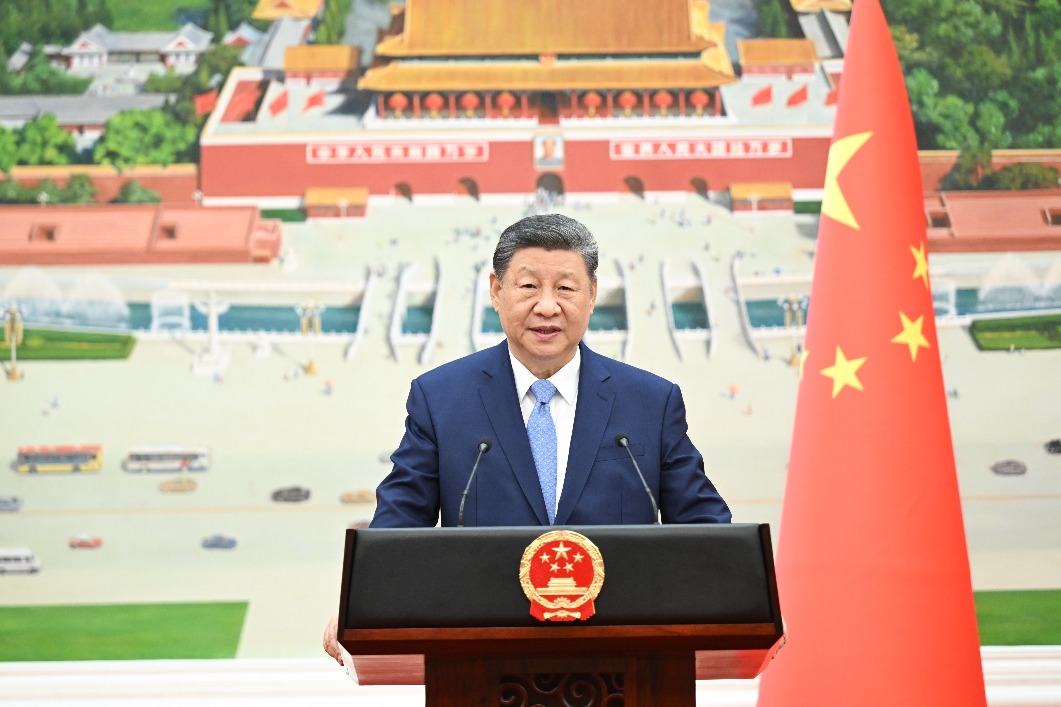Hezbollah, Israel exchange fire
Fears raised over wider conflict in region as tensions simmer in Lebanon's south

BEIRUT/HAIFA — Israel and Hezbollah exchanged heavy fire into Sunday, with Israeli warplanes carrying out the most intense bombardment in almost a year of conflict across Lebanon's south and Hezbollah firing rockets deep into northern Israel.
The attacks come less than 48 hours after an Israeli airstrike targeting Hezbollah commanders in a suburb of the Lebanese capital. The death toll from that strike had risen to 45, the Lebanese health ministry said on Sunday.
The Israeli military said it struck around 290 targets on Saturday, including thousands of Hezbollah rocket launcher barrels, and said it would continue to hit more targets.
Israel closed schools and restricted gatherings in many northern areas and ordered hospitals there to transfer their operations to facilities with extra protection from rocket and missile fire.
There were no government directives from Lebanon on Sunday morning, Reuters reported.
Israel's military said on Sunday that a barrage of approximately 150 rockets, cruise missiles and drones were launched overnight toward Israeli soil.
Sirens sounded across Israel all night as multiple rockets and missiles were fired, most of which were intercepted by Israeli aerial defense systems, the military said.
Several buildings were struck, including a house badly damaged near the Israeli city of Haifa. Rescue teams treated the wounded but there were no reports of deaths. Residents had been instructed to stay near bomb shelters and safe rooms.
Hezbollah said it targeted Israel's Ramat David Airbase with successive barrages of missiles, in the deepest strikes it has claimed since hostilities began.
The UN special coordinator in Lebanon, Jeanine Hennis-Plasschaert, said in a post on X that "with the region on the brink of an imminent catastrophe, it cannot be overstated enough: there is NO military solution that will make either side safer".
The US State Department on Saturday urged its citizens in Lebanon to leave the country while commercial options remain available over fears of a wider conflict.
In Friday's attack, Hezbollah said 16 members, including senior leader Ibrahim Aqil and another commander Ahmed Wahbi, were among those killed.
Israel's army said it hit an underground gathering of Aqil and leaders of Hezbollah's Radwan forces, and had almost completely dismantled its military chain of command.
The attack leveled a multistory residential building in the crowded suburb and damaged a nursery next door, a security source said. At least three children and seven women were among those killed, according to the health ministry.
Friday's strike inflicted another blow on Hezbollah after two days of attacks last week, in which pagers and walkie-talkies used by its members exploded.
The death toll in those attacks, widely believed to have been carried out by Israel, has risen to 39 with more than 3,000 injured. Israel has neither confirmed nor denied involvement.
In what it said was the initial retaliation for the attacks with the exploding devices, Hezbollah posted on its Telegram channel on Sunday that it had launched rockets at Israeli military-industry facilities.
Israel quickly responded, striking Hezbollah targets in Lebanon, the military said in a statement.
The developments marked the escalation of the conflict on the Israel-Lebanon border that began on Oct 8, when Hezbollah launched rockets at Israel in solidarity with Hamas in the Gaza Strip, prompting Israel's retaliatory artillery fire and airstrikes into southeastern Lebanon.
Hezbollah says it will keep fighting until Israel agrees to a truce in Gaza.
An Israeli strike on a school in northern Gaza on Saturday killed at least 22 people, according to the Gaza Health Ministry, while the Israeli army said it targeted a Hamas command center in what used to be a school.
Another 30 were wounded in the strike on the school in the Zeitoun area of Gaza City, the ministry said in a statement.
Agencies - Xinhua






























